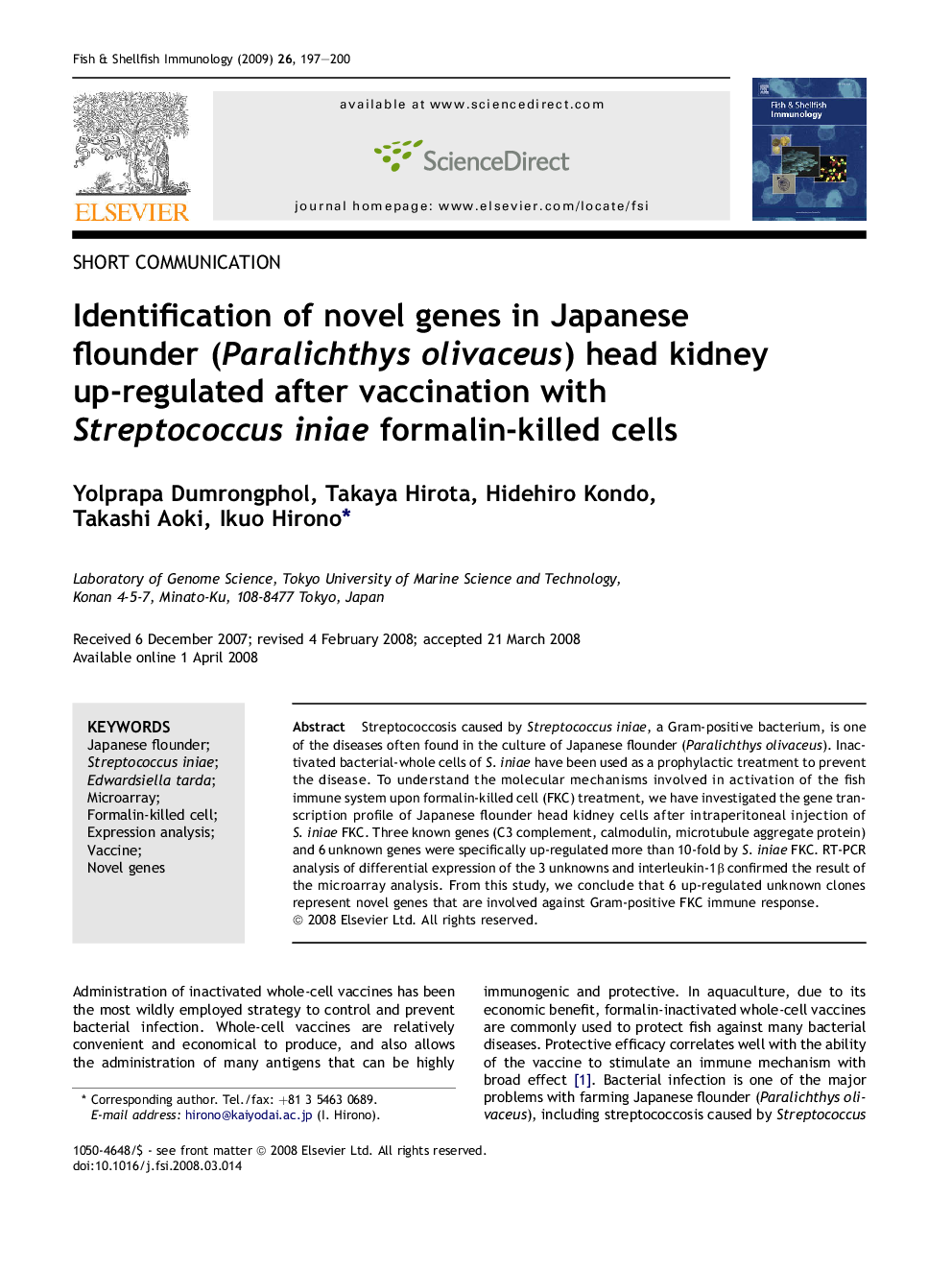| Article ID | Journal | Published Year | Pages | File Type |
|---|---|---|---|---|
| 2433319 | Fish & Shellfish Immunology | 2009 | 4 Pages |
Streptococcosis caused by Streptococcus iniae, a Gram-positive bacterium, is one of the diseases often found in the culture of Japanese flounder (Paralichthys olivaceus). Inactivated bacterial-whole cells of S. iniae have been used as a prophylactic treatment to prevent the disease. To understand the molecular mechanisms involved in activation of the fish immune system upon formalin-killed cell (FKC) treatment, we have investigated the gene transcription profile of Japanese flounder head kidney cells after intraperitoneal injection of S. iniae FKC. Three known genes (C3 complement, calmodulin, microtubule aggregate protein) and 6 unknown genes were specifically up-regulated more than 10-fold by S. iniae FKC. RT-PCR analysis of differential expression of the 3 unknowns and interleukin-1β confirmed the result of the microarray analysis. From this study, we conclude that 6 up-regulated unknown clones represent novel genes that are involved against Gram-positive FKC immune response.
